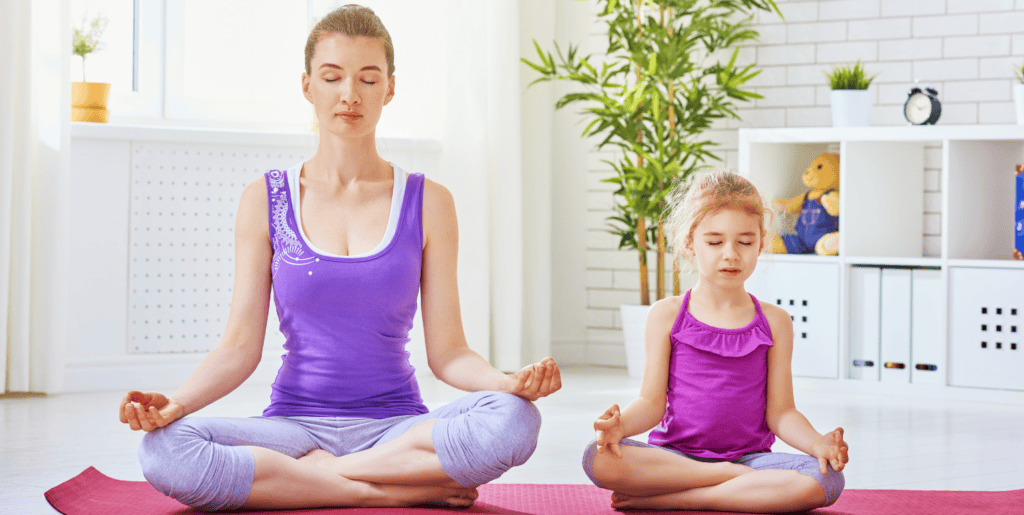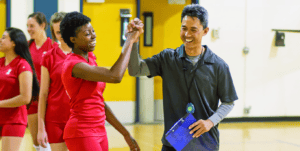PCA Resource zone
Tips for Sports Parent/Caregiver Self-Care

Positive sports experiences give young people the opportunity to connect with others, develop both life and physical skills, and a chance to have fun. Sports, especially at more competitive levels, can also become intense and stressful at times for both the athletes participating and the parents/caregivers supporting them.
The role of a positive sports parent/caregiver is to help guide their athlete through these stressful experiences by providing support, empathy, and encouragement and acknowledging the impact that their own emotional state can have on their athlete. By intentionally taking care of their own mental and emotional well-being, sports parents/caregivers can better ensure a positive experience for their athletes. Parents/caregivers can do so by building self-care into their daily routines.
Self-care means making an effort to seek out resources and activities that foster health and well-being, manage stress, and increase energy(1). Self-care is different for everyone – parents/caregivers should explore what works best for them. It is most effective when it is part of a daily routine and only requires 5-10 minutes a day. Some of the benefits of focusing on self-care are(1) (2):
- Reduced stress and anxiety
- Better able to be present and support athletes
- Demonstrates the importance of self-care to athletes
- Helps identify and manage general challenges
- Become aware of personal vulnerabilities
- Achieve more balance in life
Strategies for Parent/Caregiver Self-Care
There are many ways that a sports parent/caregiver can practice self-care – and it should be unique to the individual. Below are common, proven strategies to practice self-care.
- Identify activities that recharge and reduce stress and build time in the day to intentionally act on them.
- Practice mindfulness by checking in with the body and mind to think about what is needed in the moment. Doing so regularly can help make it easier to step back and identify when you are feeling overwhelmed(3).
- Use breathing exercises to reduce the physiological effects of stress and allow the body to relax.
- Seek out connections with family and friends. A sense of connection and belonging associated with a social support system can reduce stress and anxiety.
- Exercise regularly – research shows that regular participation in aerobic exercise can decrease overall levels of tension, elevate and stabilize mood, improve sleep, and improve self-esteem(3).
- Practice gratitude by finding moments or actions to appreciate throughout the day. Collect these thoughts in a journal at the end of the day or simply acknowledge them internally. Doing so helps decrease negative feelings and brings more positivity to the day.
While preventative self-care can help establish a positive experience for both parents/caregivers and athletes, the stress of competition can put it to the test. High stress can lead to poor sportsmanship and negative reactions that may negatively affect athletes. The following tips can help parents/caregivers maintain a positive, healthy sport environment for all involved in a moment of particular stress:
- Be respectful of others, yourself, and the game. Be mindful of tone of voice, body language, and those around you. Think about how you are showing up and interacting with the game, opponents, officials, other spectators and participants.
- Manage emotions by being in tune with and acknowledging your feelings and using a self-control routine when you feel unregulated (i.e. taking deep breaths, counting to ten silently, walking away for a second). Keep things in perspective and remember to have fun.
- Be positive by cheering for your team using encouraging sentiments and shifting your mindset to be positive about everyone – the other team included. Limit expressions of negativity and avoid shouting directions to team members. Practice patience and kindness.
- Partner with other parents/caregivers on your team to establish positive spectator expectations and interventions for when those expectations are not met.
**made in partnership with Dr. Kensa Gunter and Little League**
- http://www.temescalassociates.com/uploads/1/1/0/6/110631901/paper_self_care.pdf
- https://www.unicef.org/parenting/mental-health/parent-self-care-tips
- https://medicine.yale.edu/news-article/self-care-strategies-parents/ & https://medicine.yale.edu/lab/chawarska/news-article/self-care-strategies-for-parents-and-caregivers-part-2/







